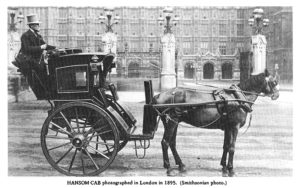Given the fact that horses are no longer a part of daily American life — and haven’t been for some 90 years — I’m always amazed at the common use of horses in many post-apocalyptic books, movies, and TV shows.
In actuality, most of us have little to no knowledge of horses. We are as familiar with horses as we are with the cows that give us milk and cheese. And cows are a lot more important to us than horses.
Urban People
We are an urban people. Heck, most of us don’t even know how our cars work, never mind our computers and smart phones. And those things we use every day.
We are technology users, but most of us know little about how that technology works. What makes any writer think we would be able to learn en masse about horses and horse culture overnight? It’s totally unrealistic.
Without a doubt, the writer of such post-apocalyptic scenarios has probably never had anything to do with horses. And not understanding how cars work, resorts to an even more unlikely scenario: people using horses as they used to use cars.
This is on my mind because I started reading a post-apocalyptic novel where horses, as usual, feature prominently. Everyone knows how to ride them, without ever having ridden one prior to the apocalypse. That was an immediate put off, and I quit reading the book.
The vast majority of us know nothing of horses, other than what we see on TV or read about in books. And oftentimes, the picture presented isn’t anywhere near accurate. Horses running at full gallop for long periods of time, for example. Impossible.
Horses
The US horse population reached its high of 20 million in 1915. Today, the number is much less. And their use very much restricted. Mostly, they are pets for the rich. Think about it, when was the last time you rode to work in a horse-drawn carriage? When was the last time you even touched a horse?
Today, the US horse population numbers somewhere between 1.9 million and 9 million animals, all depending on how you count them. Perhaps the most accurate number is 7.24 million as of 2016, which is some six years ago. And that number was down from 9.22 million in 2003. The number of animals may even be less than that today, in 2022.
Regardless of the number of animals, how many of us actually know anything about how to use and care for a horse? I’d wager darn few. Probably not a single person in any average neighborhood.
The last time I was on a horse was 64 years ago when I was in kindergarten. And I only sat on the horse I didn’t really ride it. Somebody walked the horse around a small enclosed circular track.
The last time I saw a horse up close in real life was perhaps 6 to 8 years ago when 2 mounted Minneapolis police officers rode past me on Nicollet Mall.
I know more about goldfish and cats than I do about horses. In fact, I know more about the theory of how rockets work than I know about the practical care needed for a horse.
What we’ll actually use
Which is why Bill Arthur, the hero of my Rocheport Saga, said horses weren’t the answer. We know about cars and trucks. They are the answer.
In any post-apocalyptic world, transportation will be achieved by cars and trucks — not horses.
But in such a post-apocalyptic world, where there is no gasoline or diesel fuel, and no re-charging stations, what will power our cars?
The answer is actually simple: steam and wood gas.
It is fairly easy to convert a diesel engine to run on steam. After conversion, all you need to add is a firebox or burner and the boiler. The great advantage of a steam engine is that it can use just about anything for fuel.
A wood gasifier is fairly easy to construct. It converts wood to burnable gas that can be used in a gasoline engine. Wood gasifiers were in fact used during the Second World War on the domestic front to provide fuel for tractors, cars, and buses.
We know how to drive cars. We don’t know how to ride horses. After the apocalypse, I’m betting we’ll be driving cars — not riding horses.
Another advantage of cars, either steam-powered or wood-gas powered, is that you don’t have to clean up any road apples.
Comments are always welcome. And until next time, happy reading!
Share This!